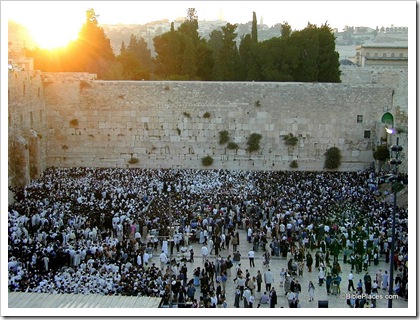Besides providing the people of Israel with much needed water, the completion of the third of five planned desalination plants may save the Sea of Galilee and Jordan River. From Arutz-7:
A huge new desalination plant dedicated this week is planned to help end Israel’s constant worry for enough water for farms, factories and homes. “Water, water everywhere and more to drink” may be a new phrase for Israel as the new plant begins to pump 10 percent of Israel’s water needs. The facility on the Mediterranean Coast at Hadera, located between Haifa and Tel Aviv, is the largest of its kind in the world and the third largest in Israel. Two more plants are on the drawing boards, with all five of them projected to provide two-thirds of the nation’s water. The desalinated water will be cheaper than the cost of pumping from the Kinneret (Sea of Galilee) to the national water carrier, according to Teddy Golan, CEO of the IDE Technologies group that built the 1.5 billion shekel ($400 million) desalination plant. […] If all goes according to plan, the Kinneret will return to flood levels in several years after all of the desalination plants come on line. The desalinated water from the Mediterranean also will allow the dams to the Kinneret to be opened and help replenish the drying Jordan River and the rapidly depleting Dead Sea.
The complete article is here.
